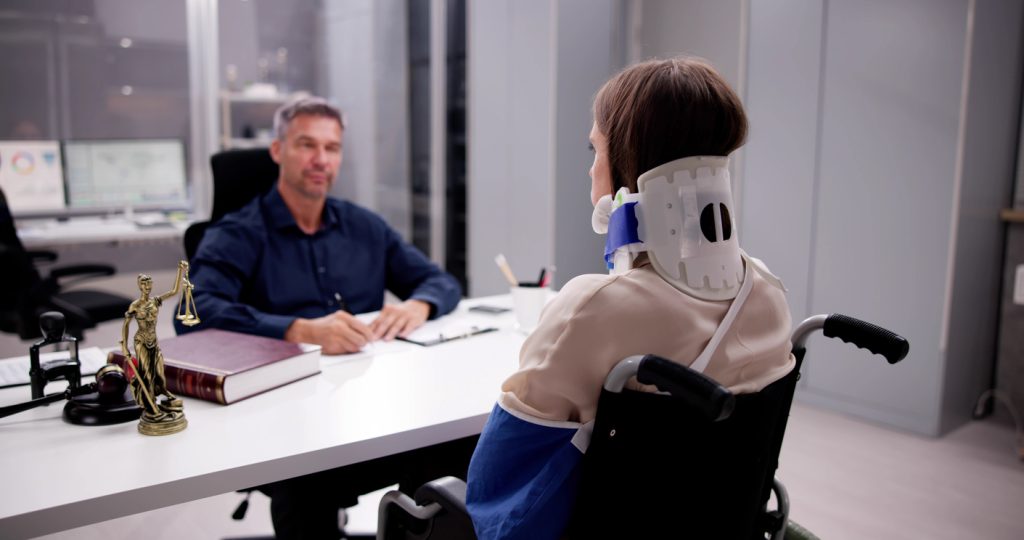You can handle a lot of things without calling a professional. However, there are some things you don’t want to tackle on your own, and this often includes filing a personal injury claim. However, what should you expect from a personal injury attorney that you can’t handle without legal representation?
In other words, what are the essential duties of a personal injury attorney? We’ll look at the duties an attorney typically handles so you can decide if working with a lawyer is a necessary part of filing a personal injury claim.
The Essential Duties Personal Injury Attorneys Commonly Perform
When you’re seeking compensation for damages sustained in an accident, you have a lot on your mind—and this alone can be reason enough to hire a personal injury attorney. Your attorney can focus on your claim while you concentrate on recovery.
However, being able to give your claim their undivided attention isn’t the only duty your attorney performs. Here’s what else you should expect from your personal injury lawyer.
Provide Legal Guidance
Chances are, your knowledge of the legal system is restricted to what you watch on TV. If you’re a Law and Order fan, you may even believe you’re almost ready to argue your injury case in court. While litigating a case in civil court is simpler than navigating the criminal justice system, it’s still not something you want to take on alone.
Your attorney is there to provide guidance from the moment they agree to represent your claim until you finally receive your settlement check.
Along with legal guidance, your attorney can also give you reassurances as you go through the process. If you need advice on issues like taking out a medical lien to help cover mounting healthcare costs, your attorney can help you navigate this tricky process.
Collect Evidence
Yes, some evidence you can collect without any help like your accident report and medical records. However, to ensure your claim doesn’t run into issues establishing fault additional evidence is usually required.
What other types of evidence could you need? You may need to supply witness statements and your attorney can take care of the deposition. Taking witness statements is a little more involved than asking if you can record the conversation. Witnesses must be sworn in and this is something only an officer of the court can accomplish. As a practising attorney, your lawyer is considered a court officer.
Your attorney can also take care of issuing subpoenas for surveillance and traffic camera footage. Some businesses will turn over the footage without a subpoena, but others may be worried about liability issues and require a court order. If you want to see video from a traffic camera, a subpoena is almost always necessary.
Some accident cases are so complex that experts may need to be brought in to establish fault or verify the extent of your injuries. Your attorney has access to these resources that may be necessary to support your claim.
Pursue Compensation
Pursuing financial compensation isn’t limited to helping you list your damages, though this is part of the process. Your attorney can also help you determine the value of your claim; most personal injury claims list both economic and non-economic losses.
You can probably calculate your economic damages without help since these are losses like your medical expenses, property damage costs, and lost income. Non-economic damages are a little harder to calculate, as these losses don’t have an intrinsic value.
Some examples of non-economic damages can include pain, suffering, mental anguish, and loss of life enjoyment. Since you don’t have bills and receipts to work with, determining the value of your non-economic losses often requires some assistance from your attorney.
An attorney can use either the multiplier or per diem methods to come up with a total for your non-economic damages.
Handle Negotiations
Your claim form is filled out without errors and your supporting evidence is ready to go. At this stage, it can seem like you’re only days away from settling your personal injury claim. While this is true for some claims, most head to negotiations, which is when you sit down with the insurance adjuster to try and reach a settlement number everyone can live with.
The insurance adjuster is probably a skilled negotiator and you shouldn’t go up against them alone. You may find yourself being talked into accepting a lower settlement and this can leave you with outstanding damages. Part of your attorney’s training is learning how to skillfully negotiate in their client’s best interests. Your attorney can help ensure your claim isn’t reduced in value during negotiations.
Litigate Your Personal Injury Lawsuit
Even though the majority of personal injury claims are settled out of court, it doesn’t apply to all of them that occur.
Sometimes, negotiations break down, and continuing the talks isn’t going to lead to a successful resolution. Your next option is to file a lawsuit against the insurance company in civil court. You don’t want to try and litigate your case, even if you have a passing understanding of personal injury law.
Your attorney is familiar with all aspects of the legal process, including keeping up with filing deadlines. Your attorney can file motions on your behalf, cross-exam witnesses, and present evidence supporting your claim.
Can You Afford to Retain Legal Representation?
A common stumbling block accident victims run into is finding the funds to afford an attorney. However, hiring a personal injury attorney may be more affordable than you realize. While all attorneys can charge flat and hourly rates, personal injury lawyers can use another type of payment structure.
Most personal injury attorneys are more than willing to work on a contingency fee basis. What are contingency fees? This is an agreement you have with your attorney to pay them a percentage of your settlement.
So, you can have legal representation throughout your claim without having to come up with an upfront fee. This can ultimately make hiring a personal injury attorney an affordable option for all accident victims.






















